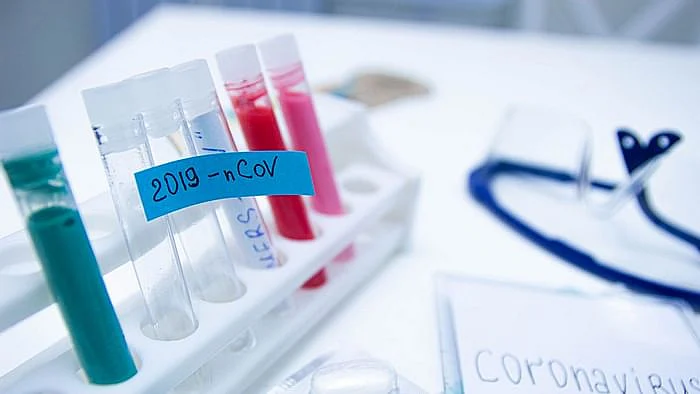
COVID-19 FAQ: What is the Feluda Test? How Does It Work? Its Cost?
All you need to know about the new indigenously developed COVID-19 test – named the ‘Feluda.’

advertisement
A new indigenously developed COVID-19 test, named the ‘Feluda’ test, received approval from the Drugs Controller General of India for its commercial launch on Sunday, 20 September.
What is the new Feluda COVID-19 test?
Feluda test is India’s first low-cost paper-based test which employs a paper strip in the detection of COVID-19. It is similar to a pregnancy test strip that changes color upon detection of the virus.
The test can be administered in a simple pathological lab. According to an Indian Express report, the new test gives results in less than 30 minutes.
Who is responsible for the development of the Feluda test?
The test has been developed by a research team led by Debojyoti Chakraborty and Souvik Maiti of the Council of Scientific and Industrial Research (CSIR), in collaboration with the Tata Group.
How does the Feluda test work?
The test employs indigenously developed CRISPR gene-editing technology to identify and target the genetic material of the novel coronavirus.
CRISPR, or Clustered Regularly Interspaced Short Palindromic Repeats, is a gene editing technology used in the treatment and prevention of diseases. The CRISPR technology can detect specific sequences of DNA within a gene, and is capable of altering it with the aid of enzyme-based molecular scissors in order to correct genetic defects.
Feluda is also the world’s first diagnostic test to deploy a specially adapted Cas9 protein to successfully detect the SARS-CoV-2 virus. According to Dr Debojyoti Chakraborty, the Cas9 protein is barcoded to interact with the SARS-CoV-2 sequence in the patient’s genetic material.
The Cas9-SARS-CoV-2 complex is then transmitted to the paper strip, where using two lines (one control, one test) makes it possible to determine if the test sample is infected with COVID-19.
How is the sample collected for a Feluda test?
The sample required is either saliva or blood, but saliva is preferred for testing as it is easy to collect.
Where did the Feluda test gets it name?
‘Feluda’ is the name of a fictional private detective from West Bengal. The character was created by the renowned writer and filmmaker Satyajit Ray. Just like Feluda, the test is credited with quick detective abilities. The name serves as an acronym for FNCAS9 Editor Linked Uniform Detection Assay.
How effective is the test?
It is believed to be as accurate as RT-PCR, the current ‘gold standard in testing.’
“The Tata CRISPR (Clustered Regularly Interspaced Short Palindromic Repeats) test, powered by CSIR-IGIB (Institute of Genomics and Integrative Biology) FELUDA, has met high quality benchmarks, with 96 per cent sensitivity and 98 per cent specificity for detecting novel coronavirus,” a CSIR statement said.
How different is the Feluda test from the RT-PCR test?
Unlike the RT-PCR test, the Feluda test “will not require any specialised skills and machines,” explained CSIR Director-General Shekhar Mande in a statement to The Print. The test can be used in any simple pathological lab.
According to CSIR, the test meets the accuracy levels of RT-PCR tests, considered the gold standard in the diagnosis of COVID-19, but yields faster results and works with cheaper equipment.
Its accuracy is superior to antigen-based tests as well, but it has to be administered and checked in a clinical setting, said a Times of India report.
What will the test cost?
The cost of the Feluda test, once it is commercialised, is estimated to be about Rs 500. The cost of the RT-PCR test lies in the range of Rs 1,600 to Rs 2,000. Antibody tests, which can give results in 20-30 minutes, cost between Rs 500 and Rs 600. Antigen tests are also available for Rs 600.
The government stated that the Tata Group had worked in close collaboration with CSIR-IGIB and ICMR “to develop a ‘Made in India’ product that was safe, reliable, affordable, and accessible.”
(With inputs from The Indian Express, Times of India, The Print)
(This article was first published on FIT and has been republished with permission.)
- Access to all paywalled content on site
- Ad-free experience across The Quint
- Early previews of our Special Projects
Published: undefined